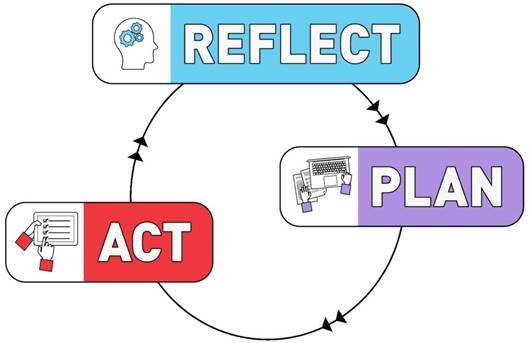
Good day Colleagues,
The CETL is happy to be of service, providing assistance in teaching and learning through our various ventures, including our social media platforms, as well as our podcasts, workshops/webinars, website and guidelines.
In our previous instalments of TTT for the semester thus far, we have explored topics such as accessing myelearning, adding learning resources to your course site, tips for engagement in teaching and learning, considerations for the selection of appropriate technologies for teaching and learning, Open Educational Resources (OERs), Alternative & Formative Assessments & The myelearning Assignment Activity, Universal Design for Learning (UDL), creating exemplary course and programme proposals at the UWISTA, Collusion & Verifying Student Anomalies in The Quiz Activity, the importance of feedback and the Turnitin Feedback Studio, a Closer Look at Reflective Practice and Reflective Writing, Action Research and Peer Observation.
This week, we will elaborate on tips for wrapping up a course.
A – Wrapping Up a Remote Course
As the semester and your courses begin to wind down/come to an end, we have provided you with some tips below for wrapping up your course experience in a way that brings proper closure for you and your students. If applied to your courses, it may help further prepare your students for their end-of-semester examinations and more. Below is a list of tips along with a short video to guide you in this regard, which you can easily apply to your course context:
-
Provide a summary of the salient points of your course:
This is a quick way of helping students become re-familiarized with the tenets of the course. This summary does not have to be very detailed, but can simply be a blurb of the modules and learning activities the students did along the way via a tip-sheet, a PowerPoint Presentation, an eflipbook, or a forum post/announcement in your course site.
-
Provide a list of suggested readings and resources:
This list compliments your summary of points while prompting students to take more responsibility for their learning. The list should not be exhaustive, but should at least comprise the main readings for the course, and thereby help students prepare for their examinations. -
Create a Closing Post on your Course Site:
This post should provide encouragement and motivation to your students as they face their end-of-semester examinations. Additionally, this post should also encourage students to reflect on their experiences in the course, acknowledging their triumphs. It may also encourage them in their future academic/career pursuits.
-
Remind them of remaining due dates and projects:
Making sure everyone is on the same page at the end of the semester can really save you and your students some trouble, confusion and stress (…and a few emails as well). Reminding students of upcoming important/submission dates is important, especially in cases where the course comprises 100% in-course assessments that are due within the next week or two. Although this information is in the course calendar and/or outline, it is still worthwhile to remind your students of this information even as they prepare for the final examinations in other courses. -
Reaffirm the core concepts of the course:
Tell students that if they “remember nothing else, remember X, Y, and Z”. Not only does this help to condense your course to the essentials, but this is a good way to bring them back from the ideas swirling in their heads to your learning objectives. -
Encourage reflection:
Ask your students about their most meaningful insights from the course…What are their take-aways?…What will they remember more than anything else? Which assignments/activities were especially meaningful? This also functions as part of your reflective teaching practice, as it provides you with insight to areas for improvement of your instruction or the course specifically.
If you want to encourage them to share their answers, rather than simply have a moment for private reflection, include these questions and others (e.g. “What are you doing next?”, “What other courses are you signed up for?” OR “Do you think this course has equipped/prepared you for those other courses?”) in a discussion topic or forum. Students often make connections from course to course, and they may be interested in their classmates’ thoughts. You may want to post an announcement that directs them to that topic and encourages participation, otherwise in case they miss it.For further tips/strategies on reflective practice, please feel free to visit our YouTube playlist via the following link:Playlist of Sessions – The CETL’s Teaching and Learning Week: Reflective Practice
7. Say goodbye and wish them the best:
If nothing else seems appropriate, you may simply post a simple farewell/until next time. Research has proven that this seemingly simple gesture goes a long way in providing students with motivation which is tantamount to their learning and academic performance. It also helps to strengthen your relationship with your students as they advance through other courses or life achievements.

